finance twitter:
London Bridge Terrorism – UK Was Naive To Think Radicalized Terrorists Could Be Easily Rehabilitated
 |
Star Online's 'Unrepentant terrorist' Yazid Sufaat freed from prison (20 Nov 2019) - extracts follows: ... the 55-year-old US-trained biochemist, described as an “unrepentant terrorist”, was being held at the Simpang Renggam prison in Johor for two years under Pota. The act allows for the detention of a suspect without trial for two years. Yazid, who has been jailed three times in the past 17 years for terrorism-related activities, once attempted to produce weapons of mass destruction for al-Qaeda. It also said Yazid acquired four tonnes of ammonium nitrate to prepare for a series of bombings in Singapore in 2000 before the plot by the Jemaah Islamiah terror network was foiled. Yazid had also attempted to cultivate and load anthrax onto weapons in Afghanistan in the 1990s. His home in Kuala Lumpur was also used by senior al-Qaeda members for meetings. In one meeting, they had discussed plans to crash planes in the United States on Sept 11,2001. It was reported that Yazid was the only Malaysian with direct links to the attacks. Yazid, a former army captain, was first arrested in 2002 under the Internal Security Act (ISA). He was released in 2008 after undergoing rehabilitation and showed signs of “remorse” and “repentance”. He was detained for a second time in 2013 under the Security Offences (Special Measures) Act (Sosma), the legislation that replaced the ISA, for recruiting new members for the Islamic State in Iraq and Syria. This led to a four-year jail sentence in Tapah prison. In December 2017, Yazid was re-arrested under Pota after the authorities found that he had been recruiting fellow inmates for al-Qaeda while in jail |
Will they ever learn? In yet another terrorist attack, two innocent people were killed at the north end of London Bridge on Friday by 28-year-old Usman Khan, a man who was convicted in 2012 for terrorism. Three others – a man and two women – were also injured and remain in hospital. The terrorist, armed with two knives and wearing a fake suicide vest, was shot dead by an armed officer.
 |
London Bridge where unrepentant terrorist Usman Khan killed two innocent people |
Friday’s attack came about 2½ years after eight people were killed and 48 were injured in a terrorist vehicle-ramming and stabbings along the same London Bridge. Apparently, Mr. Usman was one of nine people arrested in 2010 for involvement in an “Al-Qaeda-inspired” plot to bomb the London Stock Exchange. At the age of 19, he was then the youngest of the radicalized group.
On the list of targets included the American Embassy and the home of Boris Johnson, who was then the Mayor of London. Usman was also planning to build and train terrorists at a “terrorist military training camp” on land owned by his family in Pakistan-controlled Kashmir. In response to the latest attack, Johnson said it was a “mistake to allow serious and violent criminals to come out of prison early.”

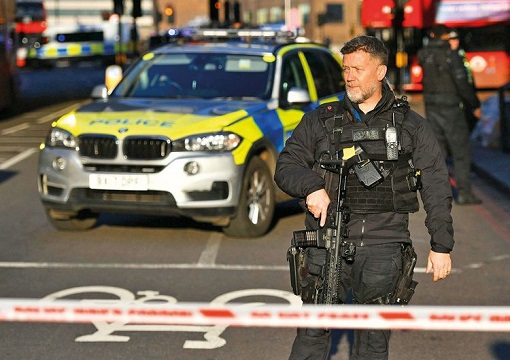
Now, a furious political row and finger-pointing have begun after an explosive revelation that the London Bridge terrorist was released automatically – and prematurely – from the British prison last year. The radicalized Usman, along with two co-conspirators, originally received an “indeterminate sentence” in 2012 with a minimum jail term of eight years – allowing them to be kept in prison beyond that minimum term.
The policy of indeterminate sentences was introduced in the Criminal Justice Act 2003 by ex-Home Minister David Blunkett, specially designed for serious sexual and violent offenders in England and Wales. In short, it was a tool for criminals who did not warrant a life sentence, but posed a serious risk to the public and could then be held in prisons after completing their minimum sentence.
Also known as IPP (Indeterminate Sentencing for Public Protection), the provision of the indefinite sentences for “dangerous” criminals was ordered by then-Prime Minister David Cameron to be reviewed in 2011. The IPP was subsequently abolished in 2012. The European Court of Human Rights had also ruled against the “unfair draconian” British system.
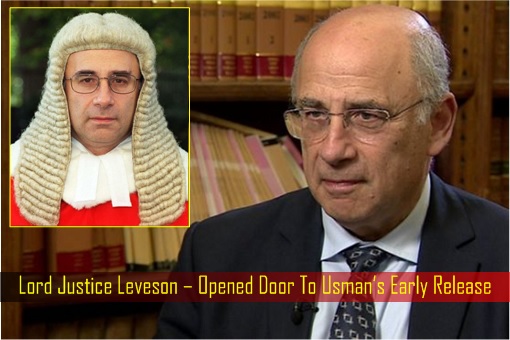
As a result, Usman Khan appealed his sentence in 2013. Lord Justice Sir Brian Henry Leveson who served in the Court of Appeal threw away the IPP slapped on Usman Khan. Instead, the unrepentant radicalized Islamist terrorist was given a fixed-term sentence of 16 years in 2013 – meaning he could be released after serving half of his term. It was a huge mistake.
The 2003 Criminal Justice Act says that any prisoners serving a determinate (fixed-term) sentence would serve half of their sentence in custody before being released on licence. Hence, the dangerous terrorist was released automatically in December 2018, less than 7 years into a 16-year prison sentence (he received a 20% discount on his sentence for pleading guilty).
When the Court of Appeal foolishly delivered its decision to scrap indeterminate sentence on a dangerous criminal like Usman in 2013, it said that the Parole Board should consider whether he was safe enough to be released. However, amazingly, the Parole Board said on Saturday that it had not been involved in deciding Usman Khan’s release.

The board said – “The Parole Board can confirm it had no involvement with the release of the individual identified as the attacker,” – suggesting that the British system, from the prison to the probation to the justice, has failed spectacularly in protecting the public from extremely dangerous people like Usman Khan.
Interestingly, in his sentencing remarks in 2012, Mr Justice Wilkie said Mr Usman and his co-accused (Nazam Hussain and Mohammed Shahjahan) were “more serious jihadist” than the others. Wilkie said that even considering Khan’s youth, the risk he posed was “so significant that it can only be adequately met by a prevention instrument like the (indefinite sentence) IPP.
“They were working to a long term agenda, no less deadly in its potential than the potential for damage and injury the subject of the short term intentions of the others. They were intent on obtaining training for themselves and others whom they would recruit and, as such, were working to a more ambitious and more serious jihadist agenda,” – said the Judge Wilkie.
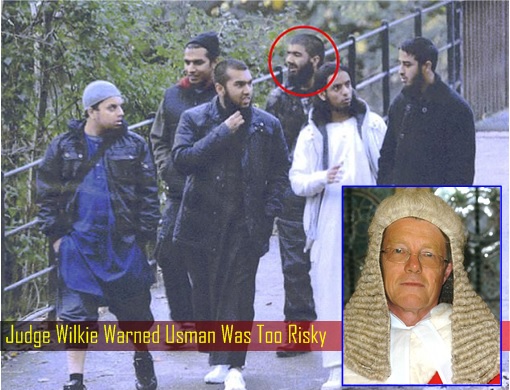
Therefore, Wilkie concluded – “In my judgment, these offenders would remain, even after a lengthy term of imprisonment, of such a significant risk that the public could not be adequately protected by their being managed on licence in the community, subject to conditions, by reference to a preordained release date.”
Clearly, the British authorities knew the identity of the radicalized Islamist terrorist and how dangerous he was – years before he launched the London attack. In fact, during their investigation in 2010 on the terrorism plot, nearly 1,000 officers – police and counterterrorism forces – were involved in the operation. Yet, they decided to release the walking time-bomb to the public.
Chris Phillips, former head of the UK National Counter Terrorism Security Office, said – “We’re letting people out of prison, we’re convicting people for very, very serious offences and then they are releasing them back into society when they are still radicalised. I’ve said it a few times today. We’re playing Russian roulette with people’s lives, letting convicted, known, radicalised Jihadist criminals walk about our streets.”

The London Bridge attacker had also written a grovelling letter dated 12 October, 2012 from prison begging for mercy and requested to be enrolled in a programme of de-radicalization to “prove to the authorities” that he was no longer “immature”. Usman Khan claimed he wanted to live his life “as a good citizen of Britain”. Of course, it was nothing but a drama fishing for sympathy.
In his letter, the unrepentant terrorist wrote that he wanted to “learn Islam and its teachings” through a program course run by the Home Office, and “live my life as a good Muslim“. Coincidentally, one of those killed was law and criminology course leader Jack Merritt, who was co-ordinating for Learning Together, the same programme attended by Usman Khan.
From the beginning, while serving his sentence at Belmarsh Prison, he designed his letter to hoodwink the British authorities and systems to fulfill his dream of terrorizing the people of the United Kingdom. And the Great Britain took the bait and swallowed the hook, line and sinker. Usman cannot be de-radicalized and should not have had been released at all.
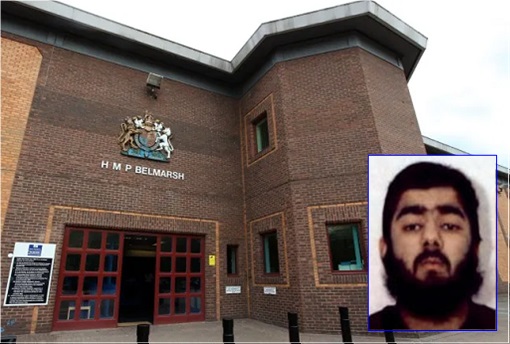
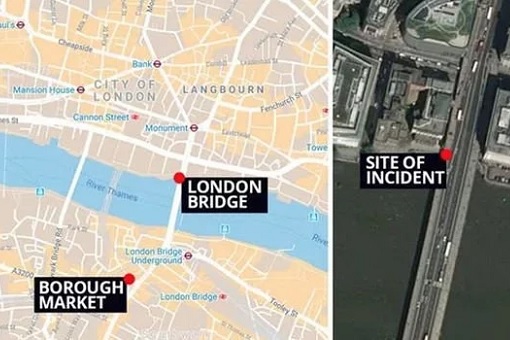
The convicted terrorist was released on license (parole) from jail last year after agreeing to wear an electronic tag to monitor his movements. But such gadget could not stop his evil plan as he took advantage of an invitation to attend the “Learning Together” conference on prison rehabilitation at Fishmongers’ Hall to terrorising people instead.
He was actually banned from entering London, one of 20 strict conditions imposed for his release. But he was given a one-day special exemption to attend the Cambridge University event. And Usman made sure he fully utilized the golden opportunity – launching his horror rampage before heroic members of the public wrested him to the ground and armed cops shot him dead.
It was also revealed that Usman had been a strong supporter of al-Muhijaroun, an extremist group which attracted scores of terrorists. Even after anti-terror police force raided his home, Usman told BBC reporters – “I ain’t no terrorist”. A former classmate said he saw him preaching with ISIS flags on the streets. Usman Khan was also a student of hate preacher Anjem Choudary.

Britain was absolutely naive to think that a man as radicalized as Usman could become a “good citizen of Britain” through a de-radicalization program. His radicalism dates back to at least 2006 when he engaged in street activism, preaching against homosexuality. In 2008, police raided his Staffordshire home for trying to brainwash his Muslim community with extremism.



Usman Khan had been convicted in a UK Law Court for terrorism. His early release is clearly a grave mistake.
ReplyDeletehttps://www.nst.com.my/news/2016/01/124257/ex-isa-detainee-canteen-helper-get-seven-years-jail
Yazid Sufaat was sentenced to seven years’ jail for intentionally omitting information on terrorist activities in 2012, and his release is proper and above board. There is no "early release" at play here.
I have been consistent over a period of 50 years being against the Malaysian Government power of Detention Without Trial.
Continuing to detain Yazid under ISA or its bastard sons POTA or SOSMA is wrong.
Wrong is Wrong.
PH will never learn.
ReplyDelete